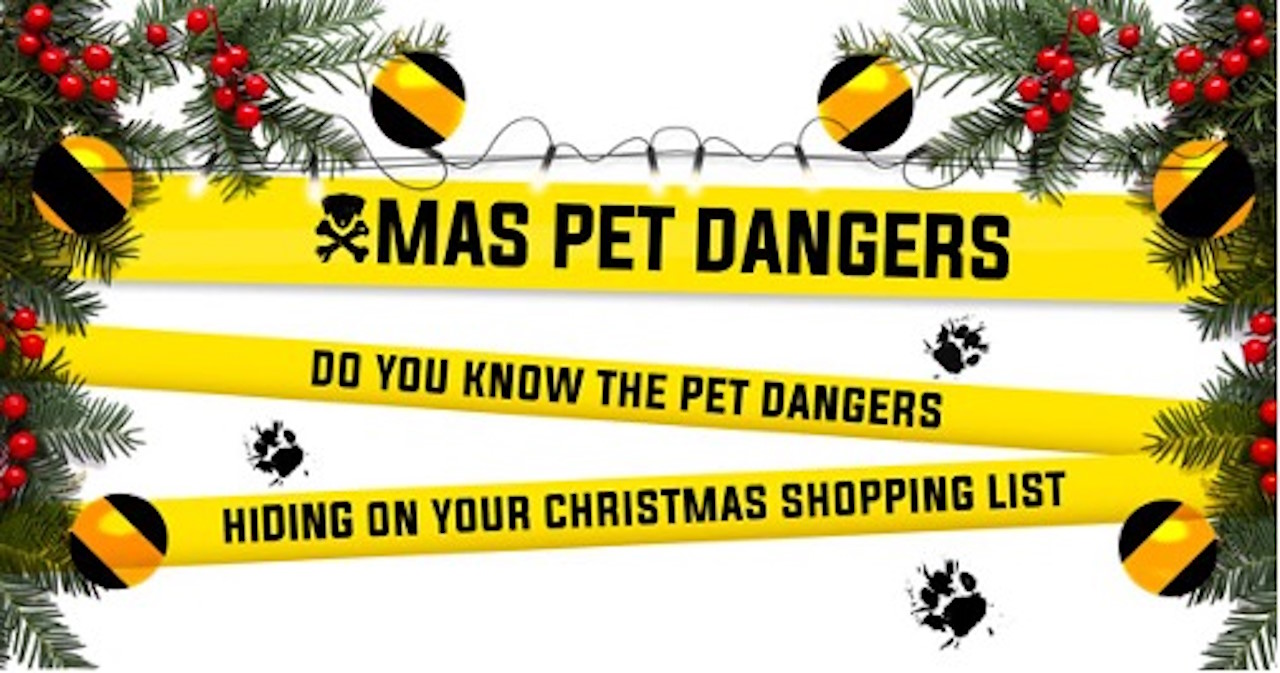Plants: Many Yule time plants can be hazardous to pets if chewed – symptoms include salivation, oral irritation and vomiting/diarrhoea. If you have any concerns talk to your veterinary surgeon who will have access to information on all different species of plant.
Food: Keep those Christmas chocolates out of your pet’s reach! Chocolate is poisonous to pets, and dogs are usually the main culprits.
Chocolate contains a compound called theobromine which dogs and cats are unable to process properly. Theobromine acts as a stimulant leading to clinical signs of; vomiting and diarrhoea, increased thirst/urination, hyperexcitability/agitation, rapid heart rate, seizures and potentially death.
The darker the chocolate the higher the theobromine content therefore the more toxic it is. White chocolate is safe however it may cause gastrointestinal upset due to its high fat content. Your veterinary surgeon will be able to assess if the dose your pet has had is safe or if action needs to be used to prevent intestinal absorption.
Grapes and their dried fruits such as raisins, currants and sultanas (whether raw or cooked) are known to cause fatal kidney failure in dogs – so keep treats such as mince pies, puddings and cakes out of reach.
Even ingestion of just a few grapes is enough to cause severe illness so always consult your vet if your dog ingests any amount.
Mould ingestion can be lethal to pets.
It usually happens when dogs raid the kitchen waste recycling caddy, so keep them out of reach this Christmas period where there is likely to be an increase in food waste. If your pet ingests mouldy food seek treatment without delay.
Symptoms can occur rapidly and include: restlessness, panting, salivation, muscle tremors, hypersensitivity and seizures.
Xylitol is often used in baked goods around Christmas time. However, it is extremely toxic to dogs if ingested, even a small amount can be fatal. Xylitol (also known as E967) can be found in many products including sweets, baked goods, jams, peanut butter, dental hygiene products, chewing gum.
Ingestion in dogs causes a rapid drop in blood sugar which can lead to lethargy, wobbliness, confusion, vomiting, collapse and tremors/seizures. Some dogs may also go on to develop acute liver failure. In case of ingestion get your dog to the vet practice ASAP!
The Allium family (onions, garlic, spring onions, chives, leeks...) cause red blood cell destruction in cats and dogs- which can result in lethargy or collapse.
Even 1 or 2 garlic cloves can be enough to cause serious problems in a cat. Exposure can also occur chronically i.e. small amounts every day can build up to cause an issue.
Gravy is often a sneaky culprit at Xmas time – instant gravy can contain a high amounts of onion/garlic powder, so avoid giving it as a treat!
Decorations: If you are decorating your tree beware of the potential dangers to your pet. Pets can be attracted to shiny lights, tinsel and baubles! Swallowed or chewed decorations can lead to cuts or intestinal blockages, and chewed fairy lights can pose an electrocution risk.
Homemade salt dough decorations are pretty but poisonous!
Due to the high levels of salt needed to make salt dough, ingestion of just one of these homemade decorations is enough to cause serious poisoning. Symptoms can range from vomiting, diarrhoea, decreased appetite, lethargy, incoordination, excessive thirst or urination. In severe cases, tremors, seizures, coma, and even death are possible.
Please avoid putting these around your home at Christmas if you have pets
Batteries: With Christmas toys and gadgets there is an abundance of batteries around!
Pets are inquisitive and may think nothing about swallowing batteries, which can cause significant damage to the mouth and gastrointestinal tract!
Large, chewed or punctured alkaline batteries often require intervention, and the lithium disc or ‘button’ batteries pose the greatest risk of all. Always contact your vet if you think your pet may have ingested a battery.
Anti-Freeze: Anti-freeze has a really attractive smell and taste to cats but is severely toxic. Ingestion rapidly causes severe illness, signs include vomiting, decreased appetite, lethargy, incoordination, excessive thirst or urination progressing to seizures and death. It is essential to seek urgent veterinary attention if you are at all concerned your pet may have ingested anti-freeze or any other toxin. For more information click here.
Lucy Travers BVSc CertAVP MRCVS Highfields Vets

